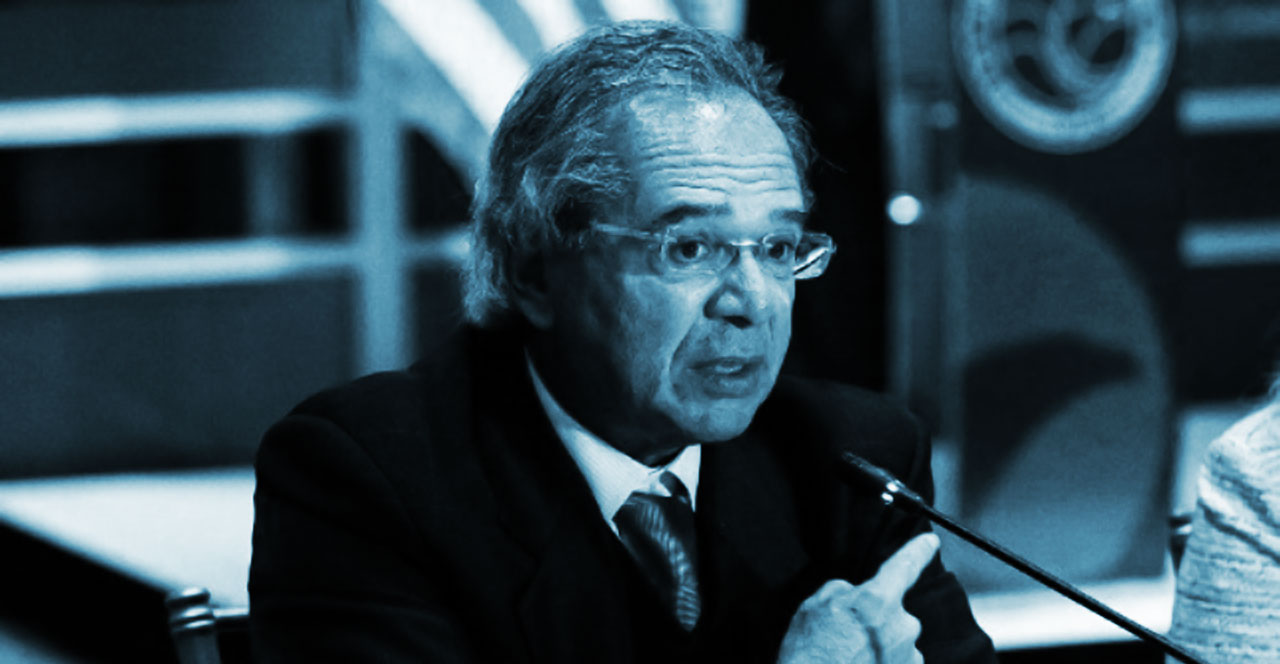By Defend Democracy in Brazil Committee – New York
The declaration of the Economy Minister, Paulo Guedes, during lunch with investors in New York, caused astonishment. “We’ve known each other for 30 years and you made a very intelligent decision, you flew out of Brazil. You were very smart to live outside Brazil,” Guedes told a Brazilian businessman who has lived in Miami for twenty-five years and wanted to know what the government will do if it cannot pass the pension reform bill in Congress. During lunch Guedes praised those who thought it best to make a living outside Brazil. Still, he assured the audience of potential buyers of the Brazilian assets that everything is running smoothly in the country.
“Democracy is just fine”, he said, more than once, as if to convince anyone who is thinking otherwise. And he insisted: “You should observe what is happening in Brazil as a natural result. You should not be shocked or desperate, thinking that it is an incomprehensible phenomenon or that something very serious is happening there.” And “let’s talk business”, since this was the reason for the lunch meeting, promoted by the company XP Investments, which had as its theme the first 100 days of the Bolsonaro government.
“We are selling,” announced Paulo Guedes. “We have already sold 12 airports, concessions, we are selling everything!”, he assured. And apparently, the Bolsonaro government is in a hurry: “We have to accelerate privatization. Brazil has been sleeping for 10 years,” Guedes said, explaining that the money from the sale of Brazilian companies and investments will be used to pay the domestic debt. But not everything … “Not all the money will be used to reduce the debt because when Banco do Brasil or Petrobras sells parts of their operations, a percentage of the money goes to the private investors.”
Guedes assured that the government is already secretly selling the national goods. “Our goal is to sell $ 20 billion dollars this year.” Silently, quietly, we’ve already sold $ 12 billion dollars. That’s more than half. We will beat our goal”. The Minister also made clear that when it comes to the current government, Brazil will soon no longer have a State oil company. In the clear words of Guedes:
– “Petrobras has to focus on its core business. Exploring oil, and that’s what it’s going to do. The rest will be sold. So you focus on what you have to do, you become more efficient, focused, easy to sell. “
He assured that the pension reform will be approved because politicians are cornered, pressured by public opinion. But a CUT / Vox populi poll, released as the minister spoke in New York, reveals that 65 percent reject the government’s proposed reform. The same survey indicates that the index of Brazilians dissatisfied with Jair Bolsonaro’s Brazil rose to 70%.
Northeast voters would be even more dissatisfied if they had heard what the minister said about one of the most important Workers Party (PT ) governments’ jobs for the region. According to Guedes, one of the biggest problems in Brazil is the concentration of resources in the hands of the Union. With so much money, he said, the federal government does absurd projects. “It builds bridges to the moon, it even changes river courses. It’s a lot of money to do crazy things,” he said, mocking the important transposition of the São Francisco River.
Perhaps he will again rectify this declaration, as he did when he changed his March 12 statement, in which he first affirmed that the government knew that former President Lula never stole a penny, but which he evaded yesterday, in an interview to an extreme right-wing blog.
Guedes said that today he is a popular man. Wherever he goes, he assured, Brazilian fans want to take pictures with the Minister of Finance. But apparently he chose not to test all of this popularity in New York, where activists were expressive against the Ministers of the Temer government. He opted to escape by a side exit and avoid the press that was waiting for him at the door of the hall where he had just promised a large stock-burning of Brazilian companies in four years of government.
[qpp]

